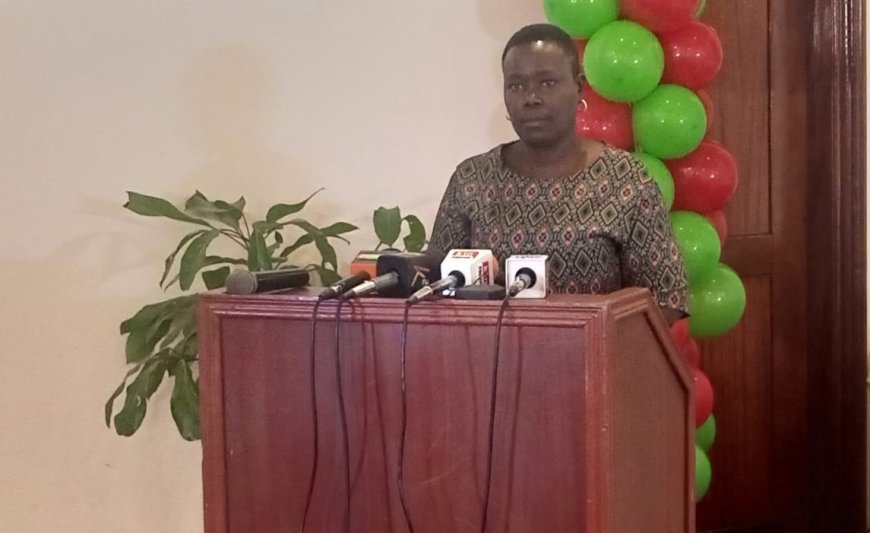Coffee farmers to be empowered on ways to get better prices

Nairobi,
Friday, October 27, 2023
KNA by Joseph Ng’ang’a
Smallholder coffee farmers across the country will be trained on how to read and understand milling and marketing contracts or engage lawyers where necessary in efforts to get them better deals and prices.
Kenya Coffee Producers Association (KCPA) chairman Peter Gikonyo said small holder farmers have been disadvantaged by being excluded in the coffee value chain explaining that according to a survey they conducted only 11.5 percent of growers confirmed comprehensively reading and understanding of the milling and marketing contracts.
Speaking in Nairobi on Thursday during the launch of the Enhancing Smallholder Coffee Farmers Inclusion in the Coffee Value Chain project report, Gikonyo said that they are working towards addressing the gaps identified by the report in efforts geared towards empowering farmers to take charge of their business.
“It is when the farmer is empowered that they are able to negotiate, engage and sign contracts which they understand and can be enforced,” explained Gikonyo.
The chairman explained that due to the exclusion of the farmer and lack of information, there are instances when the farmers have signed contracts with clauses that allow manipulation or cost addition which the farmer is not aware of and they will only see in their sales statement.
Gikonyo said that the report which is a result of interaction with farmers and industry stakeholders will be a game changer and even with the current market prices coffee farmers will be able to get a fair share of earnings from their produce.
According to the report, in the year 2020/2021 coffee contributed 0.15 percent to the total Gross Domestic Product (GDP) (AFA, 2021) and about 20 percent of the total agricultural export earnings. The sub-sector supports over 5 million people or 10.5 percent of the Kenyan population directly and indirectly as per the 2019 national census.
Smallholder coffee growers remain the biggest producers producing between 60 -70 percent of the total coffee production in Kenya through cooperatives system of production and processing. It is estimated that smallholder coffee growers are 800,000, comprising 99.6 percent of the total coffee growers in Kenya
KCPA Chief Executive Officer (CEO) Sarah Nyagah said that through the support of IDH (The Sustainable Trade Initiative), they were able conduct a baseline study which unearthed a number of areas where the farmers are excluded and they can now address the challenges using evidence.
Nyagah explained that from the study they found out that farmers lack legal support when they are contracting the service providers for the milling and marketing of their coffee and they are now able to educate them on what needs to be done before engaging the service providers.
According to the CEO, they discovered a sad state of affairs where famers deliver their coffee for milling and leave without getting a report on the quality of their coffee which poses a risk since they can be later told their coffee was of lesser quality thus getting paid less money.
“Coffee is bought by its cup quality and if farmers do not get their pre-milling report, it opens a loophole for exploitation,” explained Nyagah adding that they have addressed the challenge by training the farmers to always get a pre-milling report so that they can ask any questions if there are differences between what they presented for milling and what they are getting after milling.
She highlighted the other challenge they encountered to be majority of farmers do not have dollar accounts and coffee is traded in dollars as per the legal provisions and the marketing agents convert the payments by their own rates which are not necessarily declared to the farmers thus disadvantaging the farmer and making worse the exclusion.
Nyagah called on duty bearers to take charge in empowering the farmer by providing knowledge and information and enforcement of legal provisions that support the farmer inclusion.
Courtesy; KNA
What's Your Reaction?



































































































































































































































































































